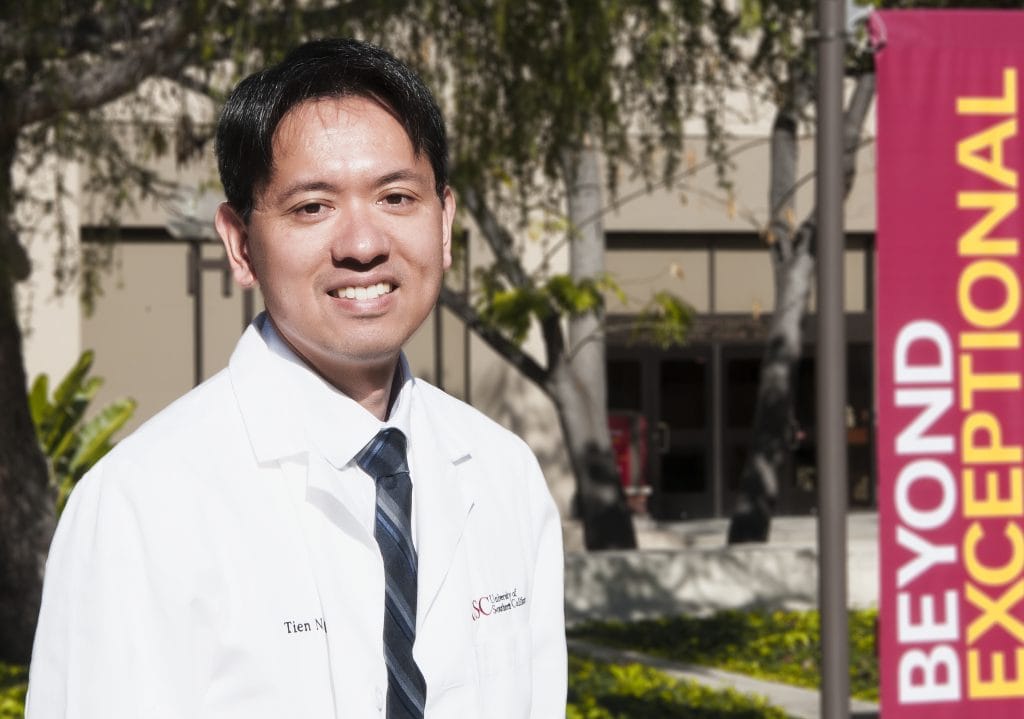Q: You earned an undergraduate degree in pharmacy at Dalhousie University in Canada before completing your PharmD at Wayne State University in Detroit. What sparked your interest in pharmacy?
A: I had wanted to pursue a career in health since high school. The complexities of understanding how to manipulate human physiology with drug therapy were intriguing from a scientific standpoint. The ability to influence — for the better — the health and wellbeing of others was the other attraction.
Q: Why did you become interested in cardiology as a specialty?
A: Cardiovascular health is important at every stage of life, so cardiology is a subspecialty that applies to everyone, whether they are healthy or ill. Cardiovascular medicine is a very physiology-based discipline, so it’s relatively easy to understand the rationale for management of various conditions. It’s also one of the more evidence-based specialties, so there is a lot to guide our treatment decisions. Even in the absence of evidence-based literature, one can still rely on a sound understanding of the pathophysiology and how different drug effects may be desirable or not in a given situation.
Q: What do you aim to communicate to your students at the USC School of Pharmacy–do you have a particular teaching philosophy? What do you want them to know about the role of pharmacists in helping patients minimize their risk of heart disease?
A: My philosophy is to prepare students for the future of clinical pharmacy practice. To achieve this, I believe we need to provide a solid foundation of knowledge and skills to meet today’s demands, but also to challenge our students to think beyond what they currently see in practice.
If the profession is truly moving toward the goal of being the primary healthcare provider responsible for the medical management of patients in all practice settings, our training of future pharmacists needs to incorporate greater depth of patient-assessment skills. Our understanding of patient clinical status must move beyond the diagnosis to incorporate a complete assessment of the whole patient. In this way, our drug therapy decision-making can truly be patient-specific, and one can have confidence in anticipating the physiologic effects of drugs.
Pharmacists play a pivotal role in the prevention of cardiovascular disease on so many levels. We have the training to modify risk factors through education on lifestyle and diet, and to reduce the risk of disease progression through medication optimization. As the healthcare provider of first contact for many, pharmacists can also provide the personal support and positive reinforcement that many individuals need to get them kick-started on the path towards improved health.
Q: What can you tell us about your current research?
A: I focus on comparing drug therapies used in the management of patients hospitalized with heart failure. We know that our current treatment options have limitations in how well they work and potential side effects they may cause. Also, once a patient is hospitalized, it affects their future wellbeing. Therefore, sorting out which therapies may be “better” in different situations remains a major focus in heart failure.
We are currently running a study evaluating two different therapies used to remove excess fluid from patients with heart failure, with the hope that we can identify a group of patients who derive greater benefit from one therapy over the other.
Q: Is there anything else you think the community at large should know about the risk of heart disease and how to prevent it?
A: Despite great advances in the management of cardiovascular diseases, the best treatment for any disease is prevention. Healthy living and sound dietary decisions are great starting points, but they do take effort. Being healthier is an active process. One needs to make an effort to incorporate both physical and mental activities into daily routines. Reading labels to reduce unnecessary fat and carbohydrate intake also takes time. But it’s all worth it, as you are keeping your heart and blood vessels healthy. A recent study found that lifestyle changes can affect the risk of developing cardiovascular disease independent of what genes you’ve inherited.
Q: On a more personal note, what do you do to stay heart-healthy?
A: I run a lot. I’m part of a group of friends who run half-marathons. Once, not long after my son was born, I ran the L.A. Marathon. I was getting such little sleep at the time, it was really tough, but ultimately I crossed the finish line.


